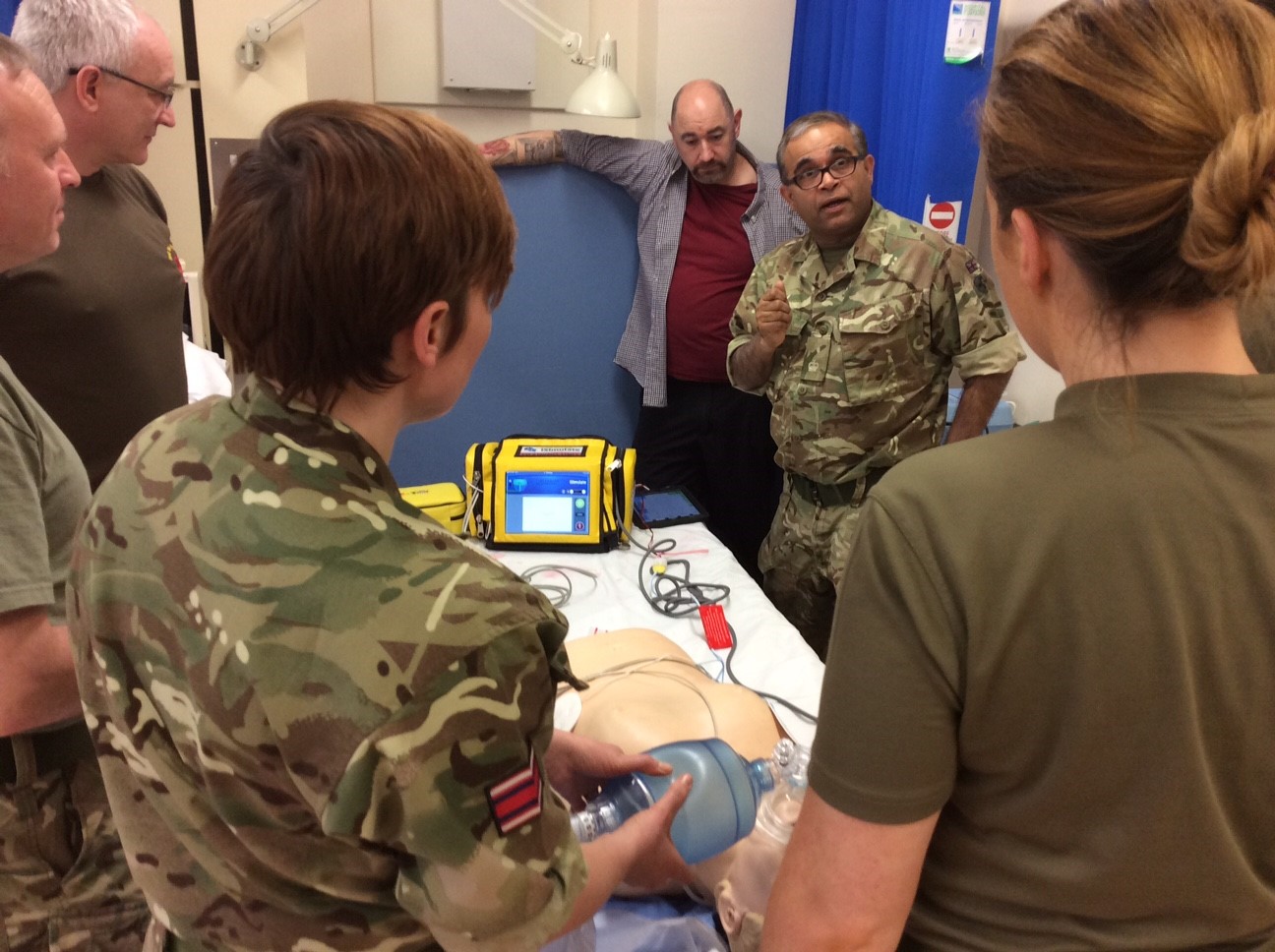
Life support training is an integral part of safe healthcare delivery. This Janury, 208 (Liverpool) Field Hospital addressed this important clinical issue and delivered an Immediate Life Support (ILS) Course, accredited by the Resuscitation Council (UK) to a cohort of 23 Army Reservists.
The course was run at Clatterbridge Campus in collaboration with Chester University. The faculty consisted of 208 Fd Hosp’s own resuscitation training team, all advanced life support instructors, supported by Mr Chris Shirley, a resuscitation practice development officer from Betsi Cadwalader University Health Board. The course saw soldiers go through a series clinical lectures on recognition and management of cardiac arrest, air management and reversible causes of cardiac arrest; the lectures were supplemented by skill specific interactive workshops and followed by a series of simulated clinical scenarios that required a high level of teamwork and methodical clinical assessment.
The groups were intentionally diverse with a cross section of clinical trades represented including nurses, physios and a surgeon, with Army Reserve ranks ranging from Private to Lieutenant Colonel. During the simulation scenarios, the soldiers all had the opportunity to lead the cardiac arrest response team and put into practice the skills taught during the lectures and workshops. This gave some junior members of the unit the rare opportunity to take command of a team of senior officers. Undaunted by the task, the feedback from the faculty on their performance was excellent.
The ILS course is judged by a process of continual candidate assessment. Turning up is by no means a guarantee of a pass. On this occasion however due to the commitment and high level of engagement with the process all 23 candidates achieved the required standard for a pass, with several being considered by the faculty for advancement onto the Advanced Life Support Course having shown a natural flare for resuscitation.
The ability to deliver a nationally accredited course that is so clinically useful at unit level is a testament to the quality of the clinical staff with 208 (Liverpool) Field Hospital. The soldiers not only improved their clinical skill sets, but took back to their civilian practice a valuable and prized qualification.
Feedback from both faculty and candidates was profoundly positive. The skills learnt can now be extended and included in future clinical training having given a large number of the unit firm foundations to build on.












